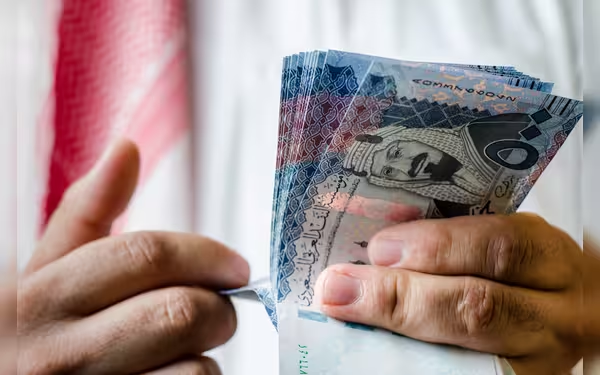Saturday, November 16, 2024 05:42 PM
Saudi Arabia Secures $690 Million Through Sukuk Issuances
- Saudi Arabia raised $690 million in sukuk issuances.
- NDMC completed SR2.603 billion riyal sukuk issuance in September.
- Global sukuk market expected to reach $210 billion in 2024.
 Image Credits: arabnewspk
Image Credits: arabnewspkSaudi Arabia raises $690 million in sukuk issuances, enhancing financial stability and attracting investors in the growing Shariah-compliant market.
In recent developments, Saudi Arabia has made significant strides in its financial landscape by successfully raising $690 million through sukuk issuances. Sukuk, which are Islamic bonds, allow investors to gain partial ownership of an issuer's assets while adhering to Shariah law. This financial instrument has gained popularity in the Kingdom, reflecting its commitment to diversifying its funding sources and enhancing its economic stability.
In September, the National Debt Management Center (NDMC) of Saudi Arabia completed its riyal-denominated sukuk issuance, amounting to SR2.603 billion. This follows a robust issuance in August, where the Kingdom raised SR6.01 billion, a notable increase from SR3.21 billion in July and SR4.4 billion in June. Such fluctuations in sukuk issuances are not unexpected, as a report from Fitch Ratings indicated that the market might experience a slowdown in the third quarter of the year. However, it is anticipated that the issuance will pick up later in the year, driven by lower interest rates and oil prices.
The NDMC's initiative to establish an unlimited riyal-denominated Islamic bond program is part of a broader Sukuk Issuance Program that began in 2017. This program aims to enhance the Kingdom's financial infrastructure and attract more investors. The September issuance was strategically divided into six tranches, each with varying maturity dates. For instance, the first tranche was valued at SR255 million and is set to mature in 2027, while the largest tranche, worth SR1.02 billion, will mature in 2034.
Moreover, a recent report from Moody's, a global credit rating agency, suggests that the global sukuk market is on track for a strong performance in 2024. The report estimates that the issuance of Shariah-compliant bonds could reach between $200 billion and $210 billion this year, surpassing the previous year's figures. This growth is largely attributed to robust sovereign issuances across the Gulf Cooperation Council and Southeast Asia, with Saudi Arabia playing a pivotal role in this expansion.
The recent sukuk issuances by Saudi Arabia not only highlight the Kingdom's proactive approach to managing its national debt but also reflect a growing trend in the global financial market towards Shariah-compliant investment options. As the sukuk market continues to evolve, it presents a unique opportunity for investors looking to diversify their portfolios while adhering to Islamic finance principles. The future looks promising for sukuk, and it will be interesting to see how Saudi Arabia and other nations leverage this financial tool in the coming years.













